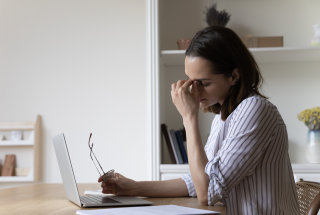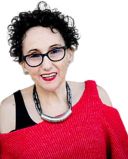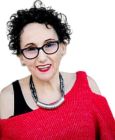Burnout
I Was Burnt Out and Didn’t Realize It
Personal Perspective: I was unaware of how badly I was feeling until it stopped.
Posted January 30, 2023 Reviewed by Gary Drevitch

Last night I was having dinner with another social worker friend in Queens, NY, before she leaves on a month-long trip to India and Singapore. She just left a job of over 12 years to strike out on her own and I started a new job this past Monday at a smaller company which involves remote work as did my last job.
We chatted easily back and forth. Nicole and I have known each other for over 10 years. We worked together at the clinic she just left As I wolfed down my burger and fries and sat back sated, I told Nicole what I had grossed last year, according to my recently acquired W-2.
“That’s not enough to live on,” she remarked. At my old job, I couldn’t charge some clients when they didn’t show up for sessions or canceled, and that really hurt my bottom line as it tended to happen often. I was stressed about finances the entire year.
My new job is a step up in responsibility and in salary. My title is Clinical Supervisor and although I will carry a smaller caseload — 15-20 clients as opposed to 40 at my old job — I will also supervise a team of licensed master social workers, review treatment plans and progress notes, and complete some administrative tasks.
I have to say I really enjoyed my first week. My new manager, who owns the agency, is terrific and super supportive. She included me in meetings, has given me access to everything, and told me she liked my feedback. I think this job is going to work out really well.
I was relating all of this to Nicole as I surveyed the damage left on my plate. A lettuce leaf, half-a pickle, and a couple of fries. It was more than I’d eaten in weeks and what’s more, I enjoyed it. I took a deep breath and I said that I think I was burnt out at my last job, perhaps even bordering on depression.
“No s--t,” she exclaimed. “You didn’t like it and you felt under a lot of pressure.”
I agreed with her. I added “I felt trapped. I was working six days a week. I didn’t see a way out of my financial mess. And there was no room for advancement.” After just a week at my new job, I feel much more optimistic, lighter, and freer. I feel enthusiastic about work again
I’ve been experiencing insomnia for over a year and my psychiatrist prescribed Trazadone, which has ceased to be effective. I just started another medication for the insomnia last night so we’ll see if that helps. I’d also been incredibly fatigued. Even a couple of hours at my desk having back-to-back sessions with clients left me longing for a nap and in fact, if I had a free hour, I’d take my dog, Shelby, for a quick walk, set the alarm on my phone, and take a power nap.
A recent New York Times article on burnout states that insomnia and fatigue are two key symptoms. When researchers in Italy surveyed frontline healthcare workers with burnout during the first peak of the pandemic, they found that 55 percent reported having difficulty falling asleep, while nearly 40 percent had nightmares. Jessi Gold, a psychiatrist at Washington University in St. Louis, told the Times that one of her own key symptoms of burnout was fatigue. “I realized I was sleeping every day after work — and I was like, ‘What is wrong with me?’ but it was actually burnout."
Considering how much I enjoyed my cheeseburger and fries for the first time in a while, the Times article also reported, “Changes in eating habits — either eating more or less than usual — can also be a sign of burnout: In the study of Italian health care workers, 56 percent reported changes in food habits.”
Was I also depressed? I think I was. Not realizing that frightens and worries me. Depression was a state I spent years experiencing, but this was more of a high-functioning depression. I know my propensity for heading downhill fast. Although I’m feeling better, I have this sense that I’m not quite out of the woods yet. It’s only been a week. But half of the battle is awareness and the other half is hope. And now I have both.
Thanks for reading.
Andrea




